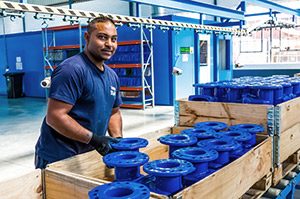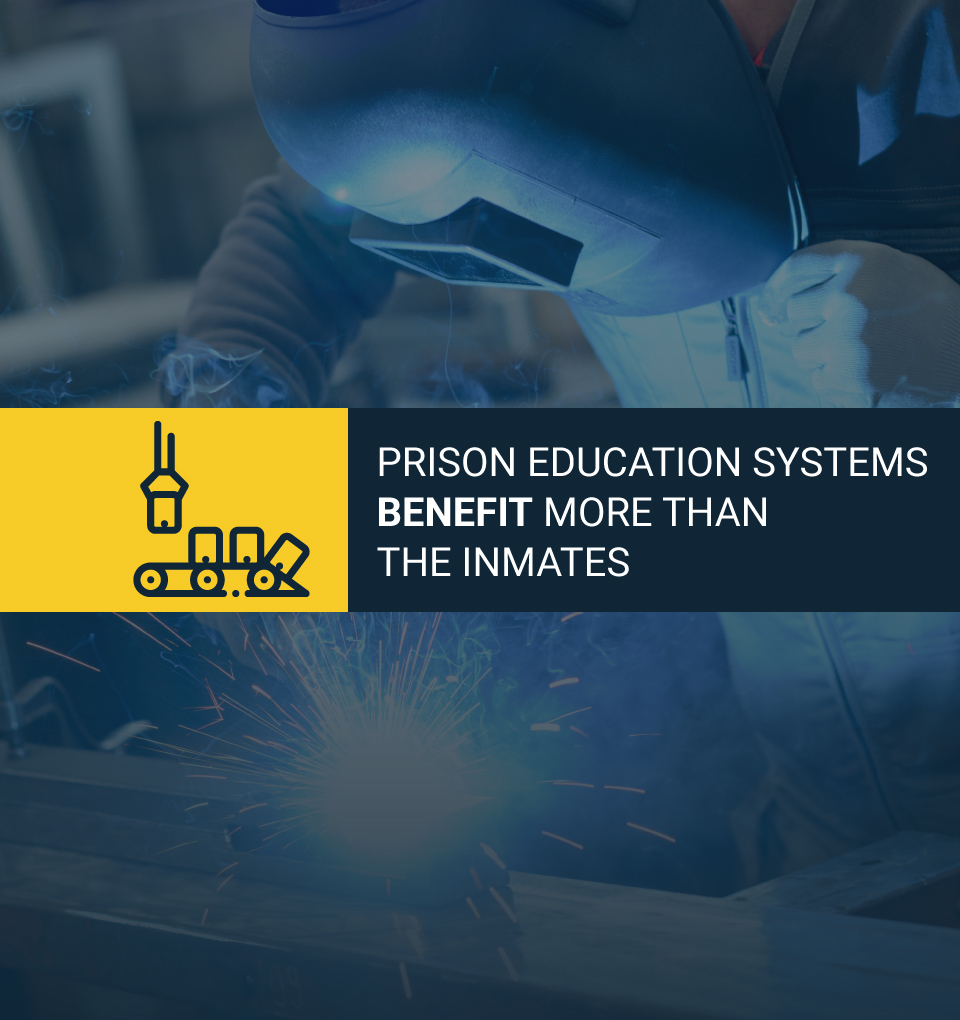Prison Education Programs Benefit Society, Employers, and Individuals. It’s Time to Partner with the DOC, Employers, and Educational Institutions.
Inmates who participate in any type of prison educational program are 43 percent less likely to return to prison. The Department of Corrections (DOC) in each state helps to facilitate proper care and supervision of all incarcerated people, including helping the offenders reenter society when it’s their time. At Sivad, we strongly believe it’s is everyone’s responsibility to help reform offenders and guide them to be productive members of society through educational opportunities. If America is to continue its path as a leading country, this is one area that we as a country cannot ignore.
 Prison Education Programs Provide Opportunity for Inmates, Employers, and Society
Prison Education Programs Provide Opportunity for Inmates, Employers, and Society
Society
While many believe that prison educational opportunities for inmates is only beneficial for those participating, it is actually the complete opposite. Society benefits as whole when offenders are able to better themselves and reduce their rate of reentry. According to Louisiana’s Department of Public Safety and Corrections, the state alone holds about 34,000 in custody in local and state facilities. With the average cost of supporting an inmate at $34,704 a year, inmates cost taxpayers billions of dollars every year.
Driving the reincarceration rate down should be our goal as a society not only for the benefit of the individual offenders but also for the community as a whole and for future generations. The resources that are currently being directed toward prisons can be put to better use when we help offenders rise in the community.
Employers
Companies such as Sivad, are wanting to partner with employers and prisons to better fill open job positions with qualified individuals. Through partnerships, employers can hire trained, certified, and willing employees that can meet the qualifications for specific jobs that they are having trouble filling. The programs provide individuals with career and technical education for industries such as automotive, construction, and power equipment. With additional support and partnerships, Sivad and other educational companies can expand their offerings and meet the needs of more employers and individuals.
Inmates
In many cases, inmates are looking to better themselves and work toward a better future for themselves and their families. According to the Institute of Education Sciences, “30 percent of incarcerated adults had attained less than a high school diploma.” With this large skills gap, many cannot hope to gain a career that is supportive of a family without more educational opportunities. Through expanded opportunity, however, they can obtain the skills and knowledge needed to gain a well-paying job. Being able to obtain gainful employment helps keep them from re-offending and going back into the system.
The Solution – Career and Technical Prison Education
At Sivad, we want to continue partnering with the Department of Corrections and the other workforce development companies to help expand the prison educational opportunities offenders have during their incarceration. In time, these educational opportunities will benefit the inmates, employers, and communities.
Through partnerships, we’re providing the same resources to inmates as we are to secondary and post-secondary institutions. Providing equipment, curriculum, material, and software in a secured and isolated system means inmates have the opportunity to learn without the risk to society that we’ve seen when open internet access is granted.
Inmates can complete programs and certifications for a multitude of industries and jobs, including:
- Advanced Manufacturing
- Automotive
- Construction
- Engineering
- Green Energy
- HVAC
- Medical/Healthcare
- Oil and Gas
- Welding
Over Coming the Challenges for a Brighter Future
While we’ve been working hard to overcome challenges, we need to continue pushing for better educational opportunities for inmates to fully gain the benefits of the programs. Working with the DOC can help address common issues with the programs. For instance, internet access is highly restricted in prisons, which limits many online educational opportunities. Working together, however, we can address the concern and build a closed and secure system. In addition, qualifying prisoners needs to be a top priority. Those who are not likely to be successful or benefit from the education programs need to be screened out. We anticipate that the DOC will release non-violent inmates for the programs.
If America wants to continue its path as a leading country, we need to set positive examples in all sections of our government including our incarceration sectors. Through additional education programs in prisons, we can help close the skills gap and boost America’s economy overall. It’s time to provide empowering opportunities to incarcerated individuals and grow as a whole nation once again.
If you would like more information on partnering with Sivad, contact us at 800-274-2194.

